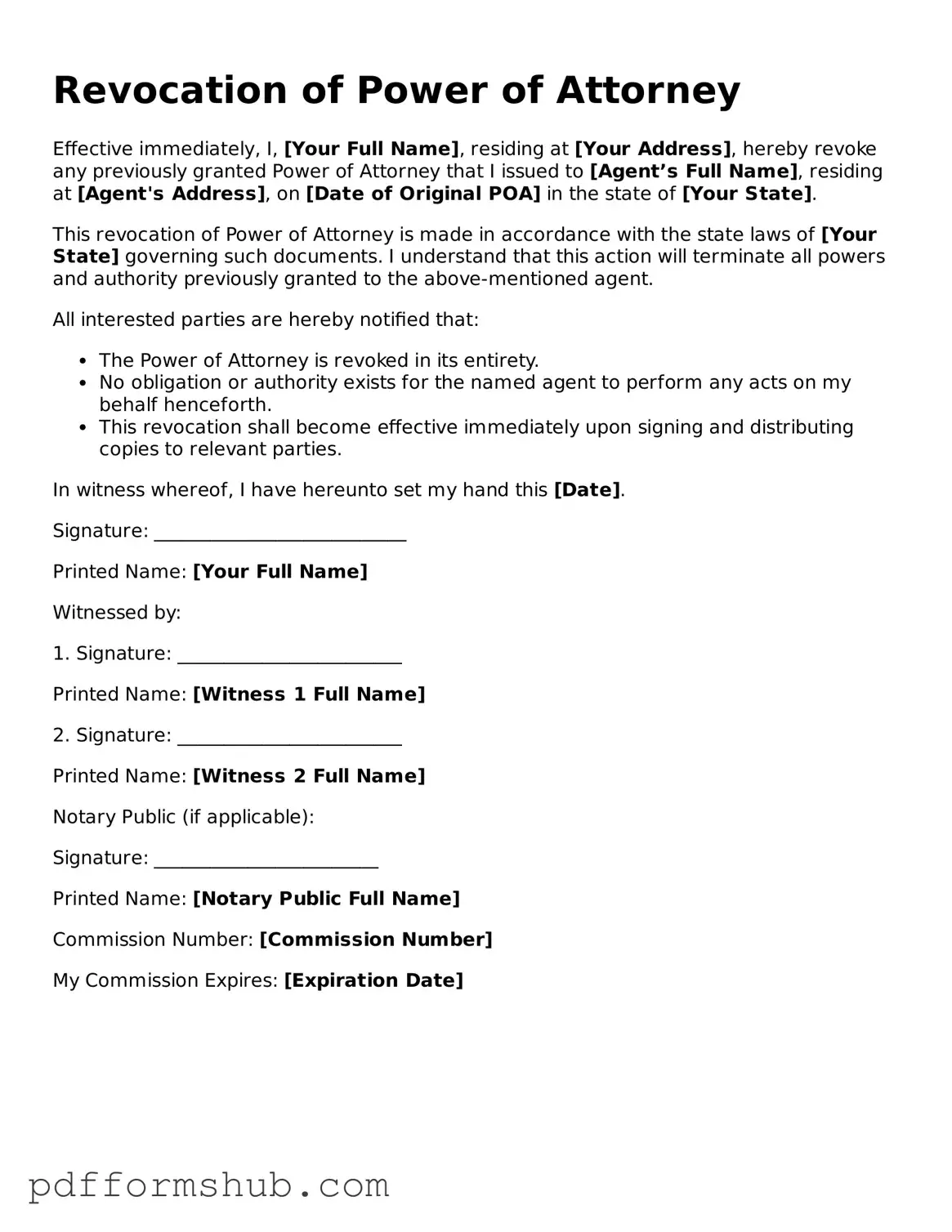Valid Revocation of Power of Attorney Form
The Revocation of Power of Attorney form is a legal document that allows an individual to cancel or revoke a previously granted power of attorney. This form is essential for ensuring that your decisions and preferences are respected, especially if circumstances change. For those looking to regain control over their affairs, filling out this form is an important step; click the button below to get started.
Customize Form

Valid Revocation of Power of Attorney Form
Customize Form

Customize Form
or
Free PDF Form
Short deadline? Complete this form now
Complete Revocation of Power of Attorney online without printing hassles.